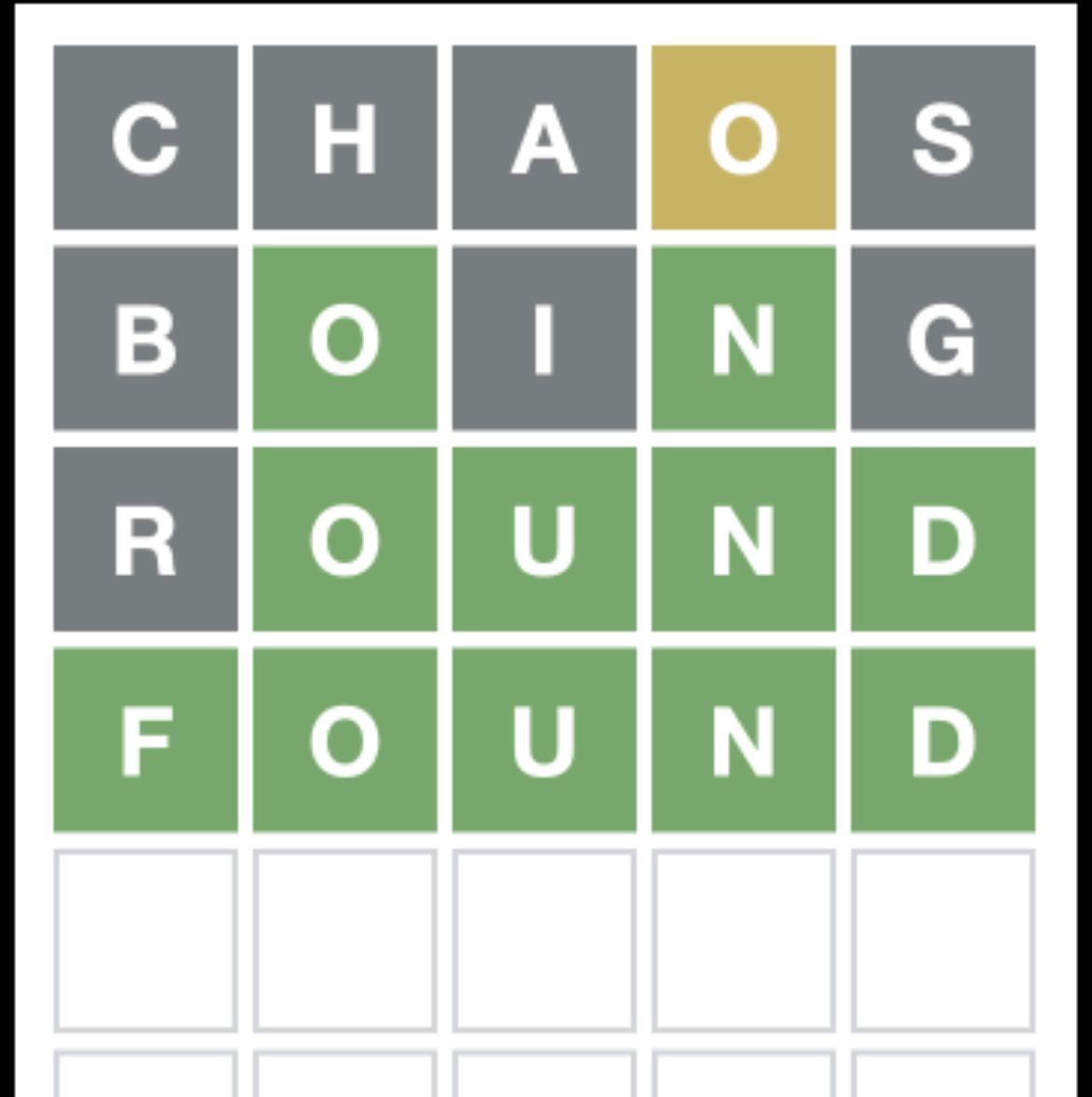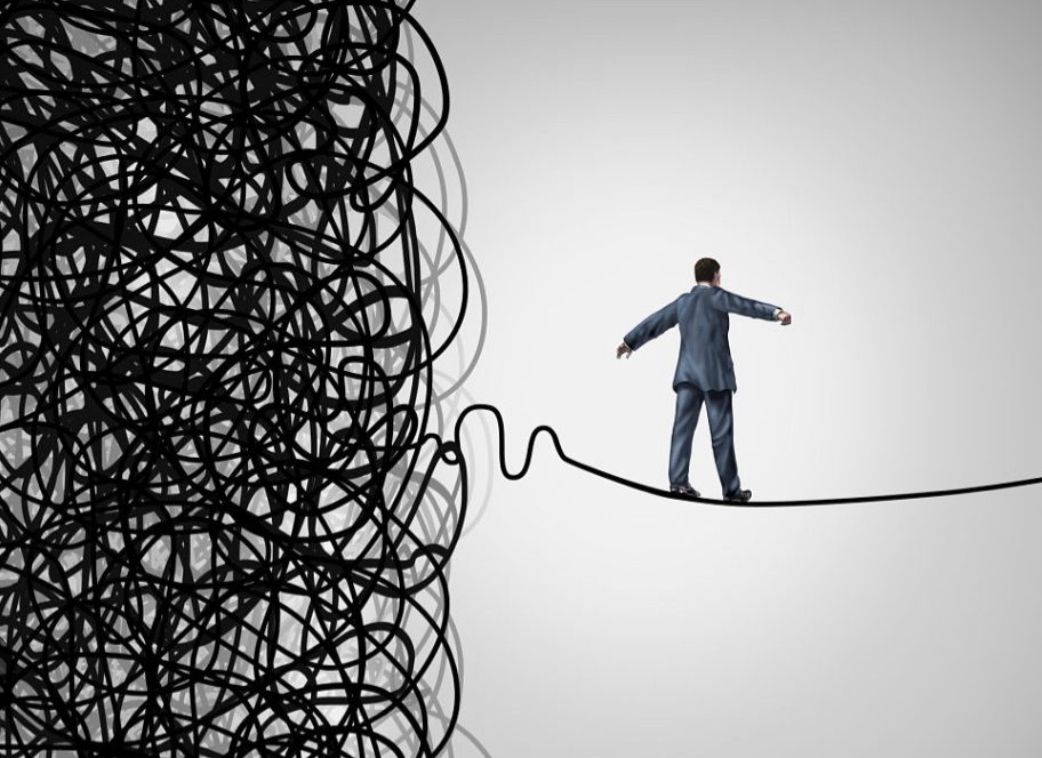Embracing Chaos

“What’s the best Wordle starting word?”
That was the biggest question on the Internet just a few months ago. Some may argue that the debate tore nations apart. By the end of the battle, popular answers included “react,” “adieu,” “tears,” “ratio,” and more.
Personally, I always start with “chaos.”

Now, I know that sounds kind of dark, but a) it’s actually a great starting word, and b) I think it tells us something a lot bigger about the concept of chaos and how we look at it.
Let’s start with a few definitions. First, Chaos Theory. I’m not particularly science-minded so I’ll try to keep this simple. Chaos Theory is the idea that nature is created out of a sum of many tiny pulsating objects, or what we know as patterns. However, we can’t expect to pinpoint what’s going to happen. Basically, there is a pattern to nature, but we’re never going to be able to figure it out. Another definition: the uncertainty principle. Heisenberg’s uncertainty principle generally states that it is not possible to predict everything about a quantum with any degree of certainty - you can either know how fast it’s going or where it is, but never both with certainty at any given moment. Finally, the butterfly effect. The butterfly effect is the idea that something as small as the flap of a butterfly’s wings can alter a major event. The usual question posed is: “Can the flap of a butterfly’s wings in Brazil set off a tornado in Texas?” It explains that there is no way for us to know the impact of the little things that happen in our lives, and that everything is an “accumulation of everything that’s come before it.”
What I’ve told you so far is that our world is unpredictable and uncertain. In other words, chaotic. We don’t know what’s going to happen around us or in our own lives. Like I said before, chaos can be a pretty scary concept. But I think there’s something beautiful about the chaos in our lives.

First, from a religious perspective, the story of creation begins with a world of “tohu vavohu,” most generally translated as “an unformed void” or “chaos.” God began to create life out of this mess, creating light, seas, trees, solar systems, animals, and people. Essentially, the entire world was birthed out of the dark depths of chaos. What I think we can take from the creation story is that to have order, we have to have chaos first. If we think about it historically and in our modern time, when society needs to change, the previous order has to be destroyed, and chaos is created so that a new order can be put in place. For example, the American civil rights movement was definitely chaotic, but it resulted in the abolishment of the Jim Crow laws and a new sense of equality in the southern United States. Same goes for the women’s voting rights movement, or any other social justice movement in the world. In order to create order, you have to start with chaos.
I think there’s also something to learn about the diversity of opinions in our world today. Because the world is so unpredictable, we don’t know the *right* answers about the biggest questions in life. We’re given an incredible opportunity to form our own beliefs, ideas, and opinions, fueling creativity and ultimately helping us build the most innovative and thoughtful society possible.
My final thought on chaos is this. Life is meant to be exciting, flowing, and happening. Because it’s unpredictable, there’s an infinite amount of possibilities in between the plans and pursuits we dream up in our own realities. If we knew what was going to happen, we wouldn’t dream big or strive to be the best we can be. Our potential as human beings would be limited, and we would no longer reach for the stars. If we embrace the chaos in our lives, we can make something incredible out of it, just like our ancestors did and just like God did when He created our beautiful world.
There is so much to be grateful for about chaos, because what’s the point of dreaming if we knew exactly when our dreams would come true?